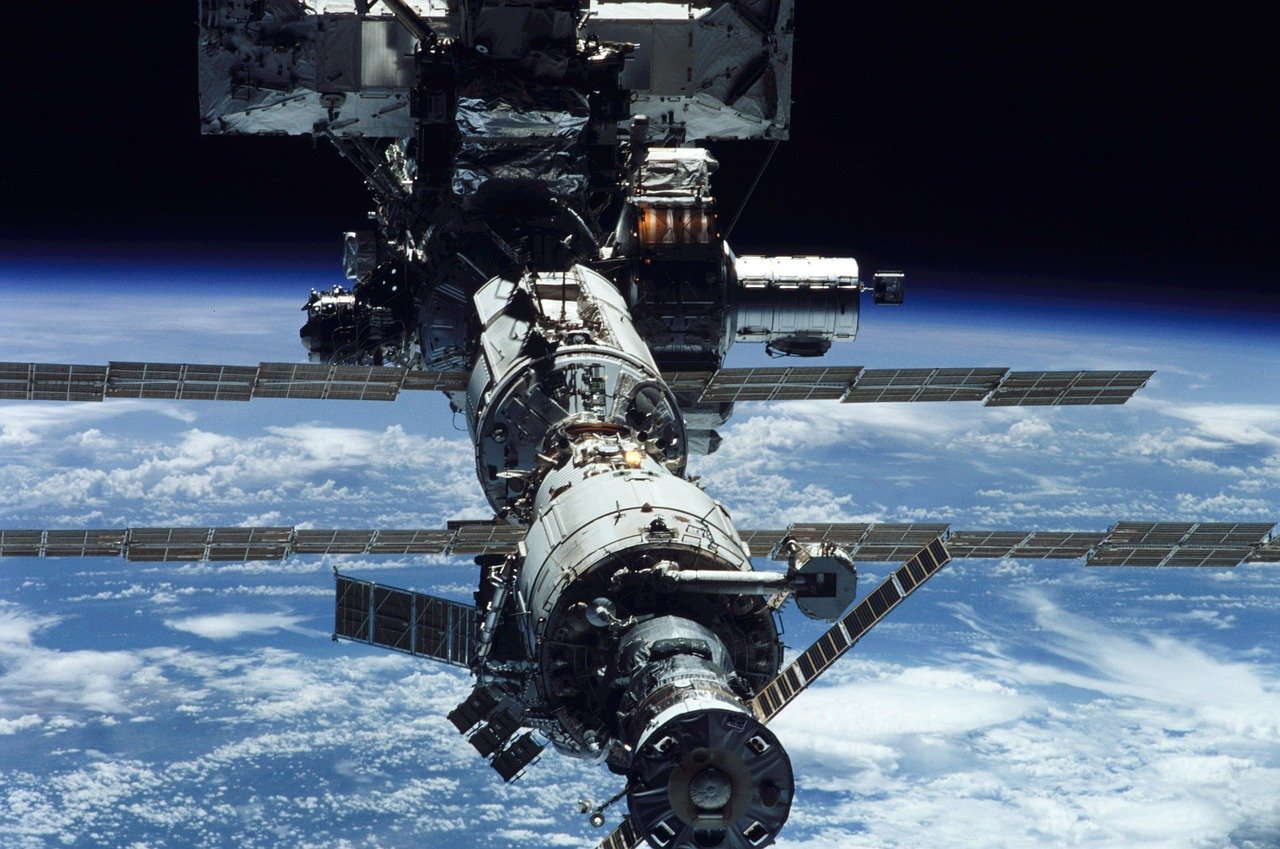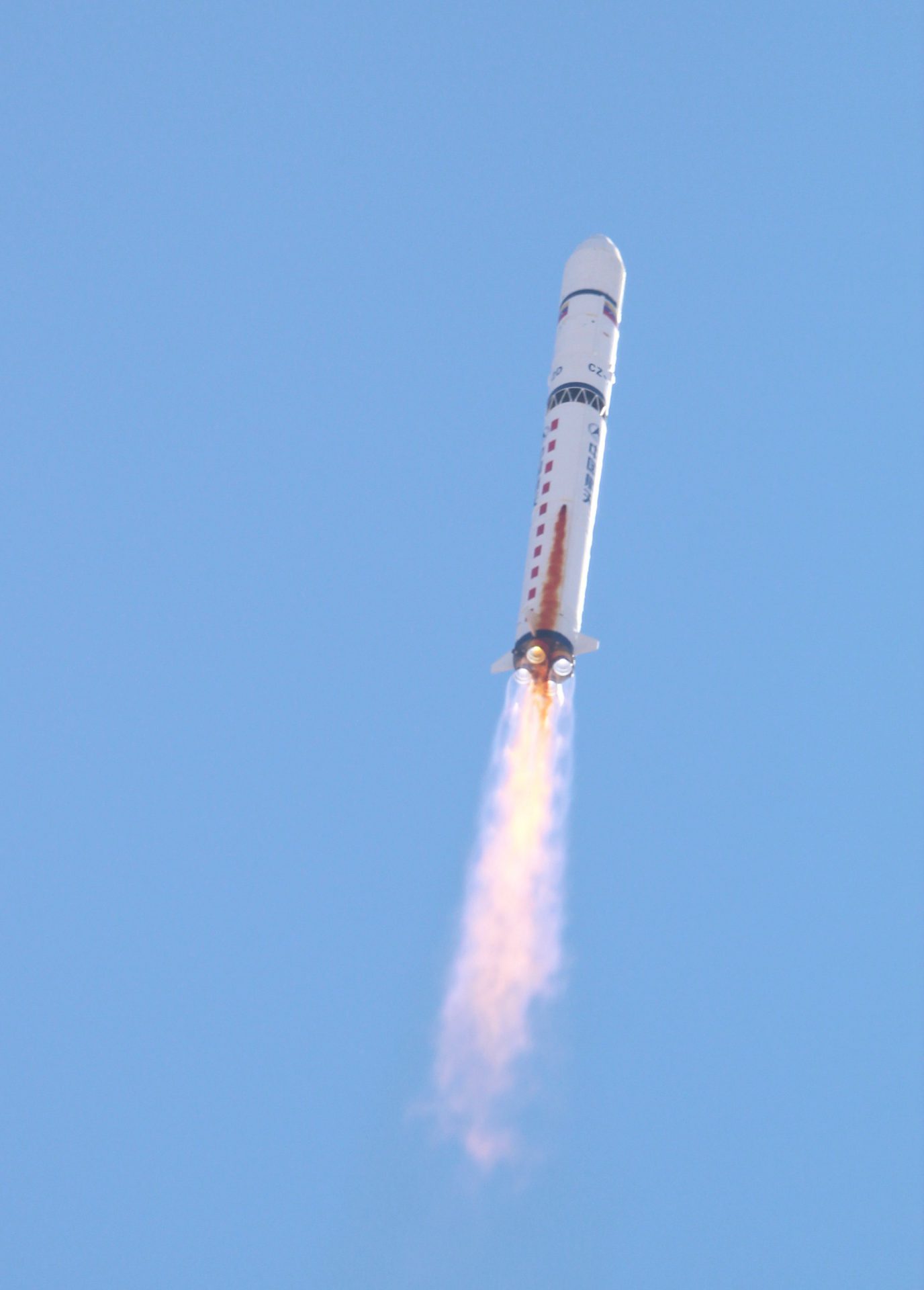Evan Freidin
The first week of May brought significant media attention to the Chinese rocket Long March-5B Y2, launched on April 29, which fell back to Earth in an uncontrolled freefall. While it was feared that the 20-tonne rocket might affect a populated area, the rocket landed safely in the Indian Ocean. The rocket brought the first part of China’s future space station into orbit above the Earth and marked the first of four launches to bring the other parts into space for construction. The space station, Tiangong, has been designed to support the long-term stay of astronauts, conduct scientific experiments and “contribute to the peaceful development and utilisation of space resources.”
The launch marks a new era for China’s ambitions for outer space. China is slowly but surely becoming a major player in space, as the final frontier finds itself becoming another playing field for great power politics.
HE WHO RULES THE HEAVENS, RULES THE EARTH

The geopolitical importance of outer space cannot be understated: satellites in orbit control communication channels and conduct surveillance on ground targets, while the Moon and other planets could one day serve as rich points of resource supply. Control of space would allow a nation to monitor, and even direct, situations across the Earth. In China’s case, satellites are used to spy on foreign militaries, particularly Taiwan’s, and Beijing has the capacity to disrupt the nation’s communications and internet access, which would cripple the Taiwanese economy. There have been attempts to keep outer space free from the geopolitical machinations of powerful states, namely through the UN Outer Space Treaty, which specified that space would be ‘the province of all mankind’ and free of nuclear weapons and claims of sovereignty. Despite this, control over space is still possible and desirable for many governments. As space becomes littered with satellites and debris, states can use space to influence and threaten nations down below, including through the ability to sabotage national internet networks and power grids.
For Chinese President Xi Jinping, the Chinese space program is designed to fulfill his goals of establishing Chinese hegemony in space. He has described the program as “part of the dream of making China stronger” and portrayed previous ventures as having “imprinted the extraordinary creativity of the Chinese nation” into history. Xi sees the program as proof of China’s and, in turn, the Chinese Communist Party’s, success as a world leader. Xi’s futuristic vision was partially motivated by a 2011 US law — passed over national security concerns — that denied China from working with NASA and the International Space Station (ISS). This isolation from the broader space community has emboldened China to create its own space plan. Recent US-China tensions have likely enhanced this feeling of isolation.
As of 2021, the US continues to be the biggest player in space. Even as NASA’s dwindling funding causes the agency to depend more on private companies like SpaceX, there is still a drive to ensure US dominance in space. NASA’s Artemis Accords, for example, aim to resume manned moon landings by 2024 through international cooperation. However, NASA could increasingly find itself in dire straits as Russia may withdraw from the joint-led ISS — calling the station old and on the verge of catastrophe, Moscow’s possible withdrawal indicates that NASA’s image has been weakened. The American government appears to realise this, as the recent federal spending bill will give NASA $24.8 billion in funding, including “the largest budget request for NASA science, ever.” The Biden administration is indicating that they are aware of just how important space is and that they willing to fight to keep their place in the heavens.
STAR BELT AND STAR ROAD (AND MAYBE STAR WAR)

Photo: Cristóbal Alvarado Minic
There is much to China’s space plan that could work in its favour. The recent landing of the Mars rover Zhurong has China joining an exclusive club of nations that have successfully landed a rover on Mars, signaling that the country is able to pull off its plans. However, the focus on the rocket Long March’s uncontrolled fall to Earth does reveal a key weakness of these plans. The slapdash quality of China’s rocket technology means that the country will have difficulty endearing respect from other spacefaring nations. This is not the first time that a Chinese rocket has fallen back to Earth without combusting upon re-entry. As the Chinese space program does not reveal the specifications of its rockets to the international community, NASA engineers have accused China of not building their rockets to standards that ensure space debris does not become a danger when falling to Earth. This lack of care could lead to damaging results, such as debris landing in populated areas, which would be both a public relations and legal disaster for Beijing.
If China can move forward with its ambitious space plans without too much controversy, a Chinese-dominated outer space would greatly enrich the country. Even if China is unable to establish hegemony in space, it will still reap significant benefits from the program. The technological advances generated from the program will enable China to become a global centre for scientific progress. The program is already making advances in quantum communication and transference. These technologies will also enable China to become a communication powerhouse, with instant and highly secure transmission of quantum communication making 5G technology all but redundant.
China could also use scientific cooperation to create new diplomatic channels with other spacefaring nations, particularly Russia. The two countries have already made plans to establish a shared lunar base in 2036, which would facilitate exploration and possible exploitation of valuable resources on the moon, giving China and Russia a strategic advantage over the US. The cooperation will likely enable greater scientific discovery and improve their spacefaring technology and could lead to the invitation of other nations to join in, such as Saudi Arabia, which will invest over $2.1 million into its space program by 2030, and Turkey, which plans to reach the moon by 2023. Space exploration was one of the ways the US situated itself as leader of the modern world, but China could be on the cusp of asserting itself as a leader in exploring the final frontier.
Beijing’s endeavor for space hegemony will likely push forward the militarisation of space. So far, militarisation has been focused on space-to-ground or space-to-air combat as a means to provide security for satellites and space stations. However, as the contest for space heats up, space weaponisation — including the deployment of weapons to space — could become a reality. The US has signaled this possibility with the formation of the Space Force in December 2019. Although still in its infancy, an increased Chinese space presence could push the Space Force to become more established. This in turn will drive China and other countries to create their own version of a Space Force. Following the US, France established a French Space Command in 2019 and Australia recently announced a Space Force of its own. Space, much like the land and sea, could become a new and very dangerous battleground.

No comments:
Post a Comment